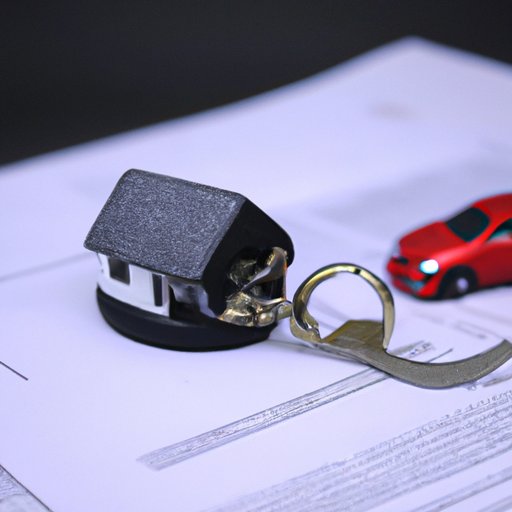Introduction
Filing for bankruptcy is an important decision that requires careful consideration. It can provide relief from financial struggles, but it also has long-term consequences. One of the most common questions people have when considering bankruptcy is whether they can keep their home and car. This article will explore the benefits and drawbacks of keeping your home and car after filing for bankruptcy, as well as strategies for doing so.
Exploring the Pros and Cons of Keeping Your Home and Car After Filing Bankruptcy
When considering filing for bankruptcy, one of the primary concerns is whether or not you will be able to keep your home and car. There are both advantages and disadvantages to keeping your home and car after filing for bankruptcy.
Advantages of Keeping Your Home and Car
One of the major benefits of keeping your home and car after filing for bankruptcy is that it can help maintain your financial stability. By avoiding the additional costs associated with selling or repossessing your assets, you can avoid a further financial burden. Additionally, retaining your assets can provide protection against creditors. When filing for bankruptcy, certain assets are exempt from liquidation, which means they are protected from being sold or repossessed by creditors in order to pay off debts. Finally, keeping your home and car can help to avoid the stress of relocating.
Disadvantages of Keeping Your Home and Car
While there are many advantages to keeping your home and car after filing for bankruptcy, there are also some drawbacks. One of the primary disadvantages is that you may still be responsible for any outstanding debt obligations on the property. If you have a loan on the property, you will still be responsible for making payments on it. Additionally, keeping your assets can be a financial burden, as you will need to continue making payments on them.

How to File Bankruptcy and Still Keep Your Home and Car
If you are considering filing for bankruptcy, it is important to understand the bankruptcy process and how it can affect your ability to keep your home and car. Additionally, there are strategies you can employ to retain your assets.
Understanding the Bankruptcy Process
When filing for bankruptcy, it is important to understand the different types of bankruptcy and the requirements for each. There are two main types of bankruptcy: Chapter 7 and Chapter 13. In Chapter 7 bankruptcy, a person’s assets are liquidated and used to pay off creditors. In Chapter 13 bankruptcy, a payment plan is established that allows the debtor to keep their assets while paying back creditors over time. It is important to understand the requirements for each type of bankruptcy, as well as any exemptions that may apply to protect your property.
Strategies for Retaining Your Home and Car
Once you understand the bankruptcy process and the impact it can have on your ability to keep your home and car, there are strategies you can use to retain them. One strategy is to reorganize your debt. This involves restructuring your debt in order to reduce monthly payments and make them more manageable. Another option is to negotiate with creditors. By negotiating with creditors, you may be able to reduce the amount of debt you owe or extend the repayment period.
Conclusion
Filing for bankruptcy can be a difficult decision to make. However, it can provide relief from financial struggles and allow you to keep your home and car. There are both advantages and disadvantages to keeping your home and car after filing for bankruptcy, and it is important to understand the bankruptcy process and any applicable exemptions. Additionally, there are strategies you can use to retain your assets, such as reorganizing debt or negotiating with creditors.
(Note: Is this article not meeting your expectations? Do you have knowledge or insights to share? Unlock new opportunities and expand your reach by joining our authors team. Click Registration to join us and share your expertise with our readers.)
